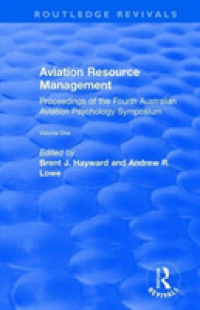- ホーム
- > 洋書
- > 英文書
- > Psychology
Full Description
This highly topical edited book documents the community response to Covid-19 across national contexts, exploring the widespread development and mobilisation of community initiatives and groups. It provides rich analysis of case studies from the Global North and South, including South Africa, the USA, India, China, Mexico, Brazil, Italy, Australia, the UK, Turkey, and Argentina.
The Covid-19 pandemic motivated a significant community response globally, with the widespread development and mobilisation of "bottom up" community initiatives and groups. These community responses were an essential yet often unseen and unrecognised means by which people survived the pandemic. This book asks questions such as how were community responses to Covid-19 shaped by national, cultural and political processes and phenomena; how did community responses to Covid-19 interact with public policies, on health, education, and social welfare; and what are the likely political implications of the community response to Covid-19? Discussing the provision of abortion care in Latin America, the support to marginalized communities in Kolkata, and the mobilisation of carnival "krewes" in New Orleans, to give a few examples, the text adopts and develops a novel socio-cultural psychological approach, weaving together contributions from scholars working in diverse disciplinary fields.
The text highlights the importance of integrating multiple levels of analysis, including psychological, sociological, and political/ideological, to investigate how communities respond to crises such as the Covid-19 pandemic, and how they can plan for and manage future crises. This is essential reading for academics and students in psychology and the social sciences, as well as policy-makers, charities, and third-sector organisations.
Contents
1. Introduction: Social distancing and social connection , Luiz Silva Souza (Fluminense Federal University, Brazil), Emma O'Dwyer (Kingston University, UK)
SECTION 1: Psychosocial and psychological resources of the community response to Covid-19
2. Volunteering motivation to combat Covid-19: Evidence from community responses in China, Susan Schwarz (King's College London, UK), Gary Schwarz (Queen Mary University of London, UK), Qing Miao (Zhejiang University, China)
3. The role of emotions in the political implications of grassroots activism in Mexico City, Alice Poma (IIS-UNAM, Mexico), Tommaso Gravante (CEIICH-UNAM, Mexico)
4. When crises collide: Reimagining the community during the Covid-19 pandemic in Slovenia, Hana Hawlina (University of Neuchâtel, Switzerland), Tania Zittoun (University of Neuchâtel, Switzerland)
5. Resilience, power of articulation and social engagement: the necessary ingredients in the face of inequalities experienced in carrying out community work in Rio de Janeiro favelas during the Covid-19 pandemic, Pedro Paulo Gastalho de Bicalho (Federal University of Rio de Janeiro, Brazil), Luana Almeida de Carvalho Fernandes (Federal University of Rio de Janeiro, Brazil)
6. Grassroots movements and Covid-19 in Buenos Aires: Vital networking and social media in times of crisis, Victoria D'hers (Universidad de Buenos Aires, Argentina)
7. Collective action and Covid-19 restrictions: Community participation in Italy and Australia, Carlo Pistoni (Università Cattolica del Sacro Cuore, Italy), Maura Pozzi (Università Cattolica del Sacro Cuore, Italy), Emma Thomas (Flinders University, Australia), Craig McGarty (Western Sydney University, Australia)
8. How can UK Covid-19 mutual aid groups be sustained over time?, John Drury (University of Sussex, UK), Maria Fernandes-Jesus (York St John University, UK), Guanlan Mao (University of Sussex, UK), Evangelos Ntontis (The Open University, UK), Rotem Perach (University of Sussex, UK)
SECTION 2: Communities transforming social representations and public policies
9. Reimagining infrastructures of care in pandemic times: Sketches from Kolkata, Raktim Ray (University College London, UK), Amit Chatterjee (School of Planning and Architecture, Bhopal), Koumi Dutta (Independent Researcher), Dana Sousa Limbu (University College London, UK)
10. Abortion care in times of crisis: Feminist, compassionate and political, Mariana Prandini Assis (Federal University of Goiás, Brazil), Oriana Lopes (Balance Promoción para el Desarrollo y Juventud, Mexico), Verónica Vera (Red Compañera, Ecuador), Ruth Zurbriggen (Socorristas en Red, Argentina)
11. The community action networks in Cape Town: Lessons from a bottom-up community response to Covid-19, Manya van Ryneveld, Eleanor Whyle, Leanne Brady
12. Psychological, social, and political implications of participation in UK Covid-19 mutual aid groups, Emma O'Dwyer (Kingston University, UK), Luiz Silva Souza (Fluminense Federal University, Brazil)
13. Re-constructing the meaning of aid through the communities during Covid-19: The psychological responses in between the responsibilities of the welfare state, benevolent aid plans, and the politicisation of communities in Turkey, Bengisu Akkurt (Abdullah Gul University, Kayseri, Turkey), Ahmet Çoymak (Abdullah Gul University, Kayseri, Turkey) , Yasin Koç (The University of Groningen, Netherlands)
14. Covid-19, Carnival, and Community in New Orleans, 2020, Martha Radice (Dalhousie University, Canada)
15. Combating corruption during Covid-19 in Bangladesh: The role of community-based organizations, Nurul Huda Sakib (Jahangirnagar University, Bangladesh), Faria Ahmed (Bangladesh University of Professionals)
16. Commentary, TBD - We will invite a senior scholar in the field of socio-cultural or community psychology to write this chapter







